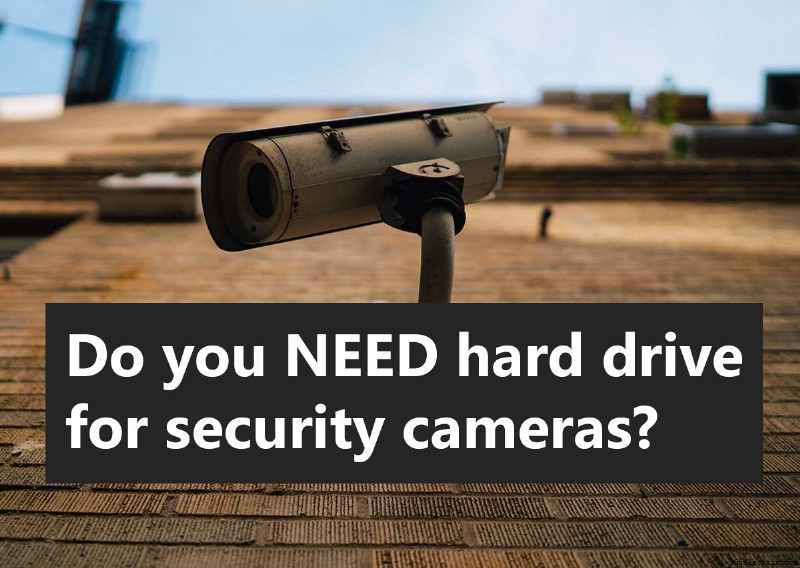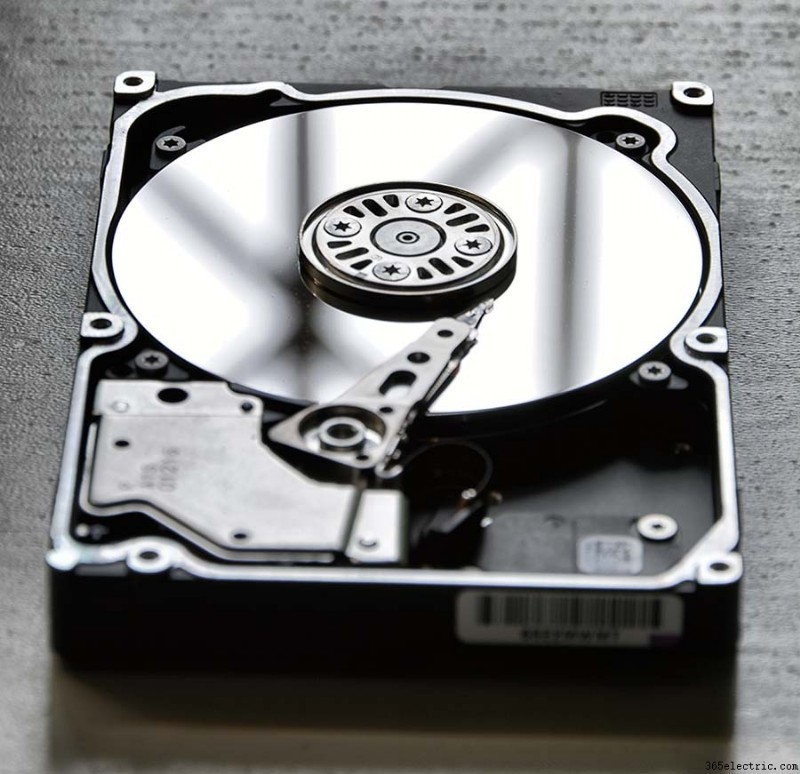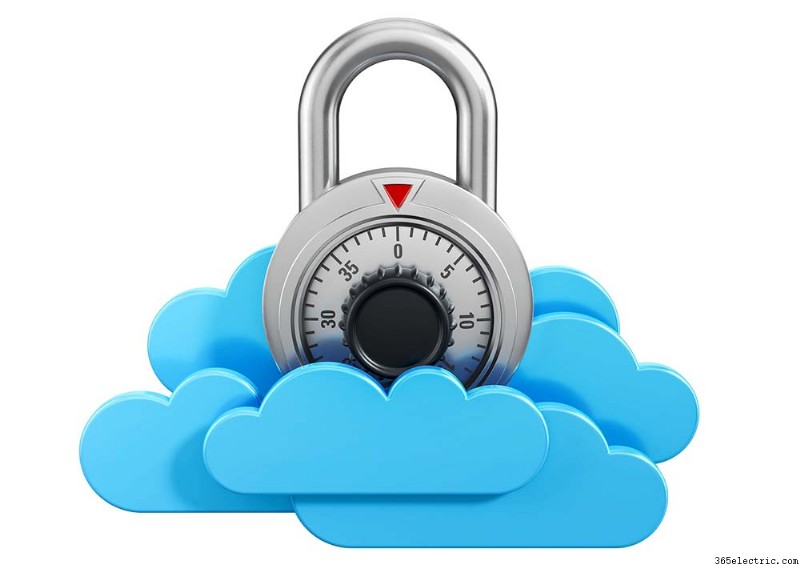¿Necesita un disco duro para DVR o cámaras de seguridad
El almacenamiento de video es el componente principal de cada sistema de cámara de seguridad . Ese es el punto de todo un sistema de CCTV, tener evidencia en video de posibles incidentes alrededor de su propiedad.
Al investigar los sistemas de seguridad, es posible que se encuentre con la pregunta de si necesita un disco duro para cámaras de seguridad y la respuesta es complicada. Hoy en día, los sistemas de seguridad pueden grabar imágenes de larga duración y alta resolución.
Para responder a la pregunta:Los sistemas de cámaras de seguridad (DVR, NVR) necesitan discos duros para almacenar las grabaciones. De lo contrario, puede terminar con un sistema que solo proporciona una transmisión de visualización en vivo. Además, muchas cámaras IP vienen con ranuras para tarjetas microSD, lo que significa que puede almacenar los videos directamente en la cámara, aunque la duración del metraje es bastante corta.
En este artículo, hablaremos sobre si las cámaras de seguridad necesitan discos duros, cuántos discos duros, cuánto tiempo puede grabar y en qué casos no necesita discos duros.

¿Necesita un disco duro para cámaras de seguridad DVR o NVR
Sistemas de cámaras de seguridad con NVR o DVR
En este caso, las cámaras no están diseñadas para funcionar de forma independiente, sino que son parte de un sistema de CCTV centrado en una grabadora. Este grabador puede ser DVR (para cámaras analógicas HD) o NVR (para cámaras IP).
Todas las cámaras de seguridad envían la transmisión de video a la grabadora que almacena las imágenes en sus discos duros (internos). El número de discos duros instalados depende del modelo y fabricante de la grabadora. Algunas grabadoras aceptan 2 discos duros, o 4 piezas o incluso 8, y así sucesivamente. El tamaño de los discos duros comienza desde 1 TB y hasta 12 TB por ranura. Consulte la hoja de especificaciones para averiguar qué tamaños de disco duro son compatibles.
Básicamente, cuantos más discos duros se instalen y mayor sea su capacidad, más tiempo grabarán las cámaras de seguridad. Averigüe cuánto tiempo el almacenamiento de video es lo suficientemente bueno para usted y luego compre los discos duros. Asegúrese de instalar discos duros aptos para CCTV que son mucho más confiables y brindan una mayor vida útil en comparación con los discos duros de computadora normales.

Use microSD cards to record directly on the security camera
Certain security cameras support microSD cards, they have built-in slots where you can install a microSD card. The size of the cards can vary from 64Gb to 256GB and so on. Consult this article:The best microSD (memory) cards for security cameras .
In this scenario, the security camera will record the footage directly on the microSD card. You can playback and backup the footage of the microSD by using a computer or smartphone app. The downside is that microSD cards are relatively small compared to hard drives and you may only record a few days before the overwrite starts.
This solution is recommended if you don’t need a whole security system, one or two cameras is enough. You can save money and the cameras will still be able to store the recordings on their built-in microSD cards.
Cloud storage
Most IP cameras, NVRs, or DVRs offer the option of cloud recordings which eliminates the need for on-site storage, letting the cloud service provide storage of the recordings on their servers.
Usually, cloud storage providers can record for a longer period of time depending on your needs, let’s say from one month up to a few months. Another thing to keep in mind, nothing will be recorded on the cloud if the internet doesn’t work or its speed is compromised. You need to make sure the internet is stable and the higher the speed, the better.
 One potential drawback of CCTV cloud storage is the high cost associated with it. Usually, these providers work on the subscription model, meaning you pay a monthly fee. If you used hard drives on your recorder, there’s no need to pay any fees. If you intend to go for cloud storage, try to balance the cost of the service against physical on-site hard drives.
One potential drawback of CCTV cloud storage is the high cost associated with it. Usually, these providers work on the subscription model, meaning you pay a monthly fee. If you used hard drives on your recorder, there’s no need to pay any fees. If you intend to go for cloud storage, try to balance the cost of the service against physical on-site hard drives.
How many hard drives do you need for your security camera system?
Finding out how many hard drives you need for your CCTV system is about finding how long you want to record, the recorder capability, and the budget.
Determining the right amount of storage for your security system is relatively straightforward. You need to calculate the longevity (how many days you need to store), the number of the cameras, the video resolution, and the bitrate.
Additionally, if you record on motion detection you can double or triple the total days you can have recordings on hard drives. On motion detection, the CCTV system stores videos only when triggered. When nothing happens, nothing is stored. Nowadays most security systems record motion detection by default. However, if not happy, you can set a system to record continuously (24/7).
Generally speaking, it is recommended to store surveillance recordings for at least 30 days which provides video evidence of everything that happened last month. However, many commercial entities prefer storage for up to 90 days, which requires a large amount of storage.
For a security system running on 8 cameras, you may need 4TB-6TB hard drive space for 30 days on motion detection. For 16 cameras, you may need an 8TB-12TB storage space. For 32 cameras you go for 16TB-24TB total space. If you intend to record on continuous mode, you may need twice as much. Important note:Buy CCTV rate hard drives .
Other things to consider are the video resolution (the higher, more store needed), the bitrate, the frame rate (15-20 fps recommended). If you increase any of these parameters, the system will need more storage space to store the recordings. It’s recommended to find the right balance.
Tips to record longer on your security camera system
There are a few ways to improve the efficiency of your video recording and record more days in the CCTV security system without necessarily adding more hard drives or being forced to lower the resolution.
- Set the system to record motion detection, it will record when the motion is detected. Most of the storage is never reviewed, only if there’s an incident you need to take a look. By using motion recording you can record twice or even triple as much.
- Let the system record at specified times of the day, when the cameras are needed the most. For example, you can set the machine to record on timeframes you’re away from the house, and not record if you’re home. This will drastically cut down the video storage required.
- Play with the resolution, frame rate, and bitrate until you achieve a picture quality that you’re happy with. The lower they are, the less video storage required. However, don’t go too low. Try to find the perfect balance.
- Exclude objects that unnecessarily trigger motion detection. Let’s say you have a tree there that moves in the wind and the motion is triggered, meaning the system is recording even if there’s nothing relevant there. You can exclude the tree from the system’s settings, simply deselect that part of the screen.
- Clean the camera every month. Sometimes spider’s web or other insects may trigger the camera for no reason. Wipe the cameras once in a while and make sure no false triggers are occurring
Conclusion
To conclude, a DVR can work without a hard drive, but you won’t be able to record anything, you’ll just be able to see the cameras live on the screen. So, without a hard drive, a DVR or NVR cannot record locally.
A few newer systems offer cloud recording, which means you don’t record on the local hard drive but the footage is stored on the cloud remotely via the internet connection.
- ·Cosas que usted necesita para las cámaras de infrarrojos
- ·¿Usted necesita un amplificador para subwoofer
- ·Puede usted Enganche un disco duro portátil a una Carta DVR
- ·Cómo arreglar un disco duro en mi DVR
- ·Cómo transferir un DVR a una unidad de disco duro
- ·Cómo reemplazar un disco duro DVR
- ·¿Qué necesito para Directv HD DVR
- ·¿Es necesario un servidor de vídeo independiente por Mi Cámaras CCTV
